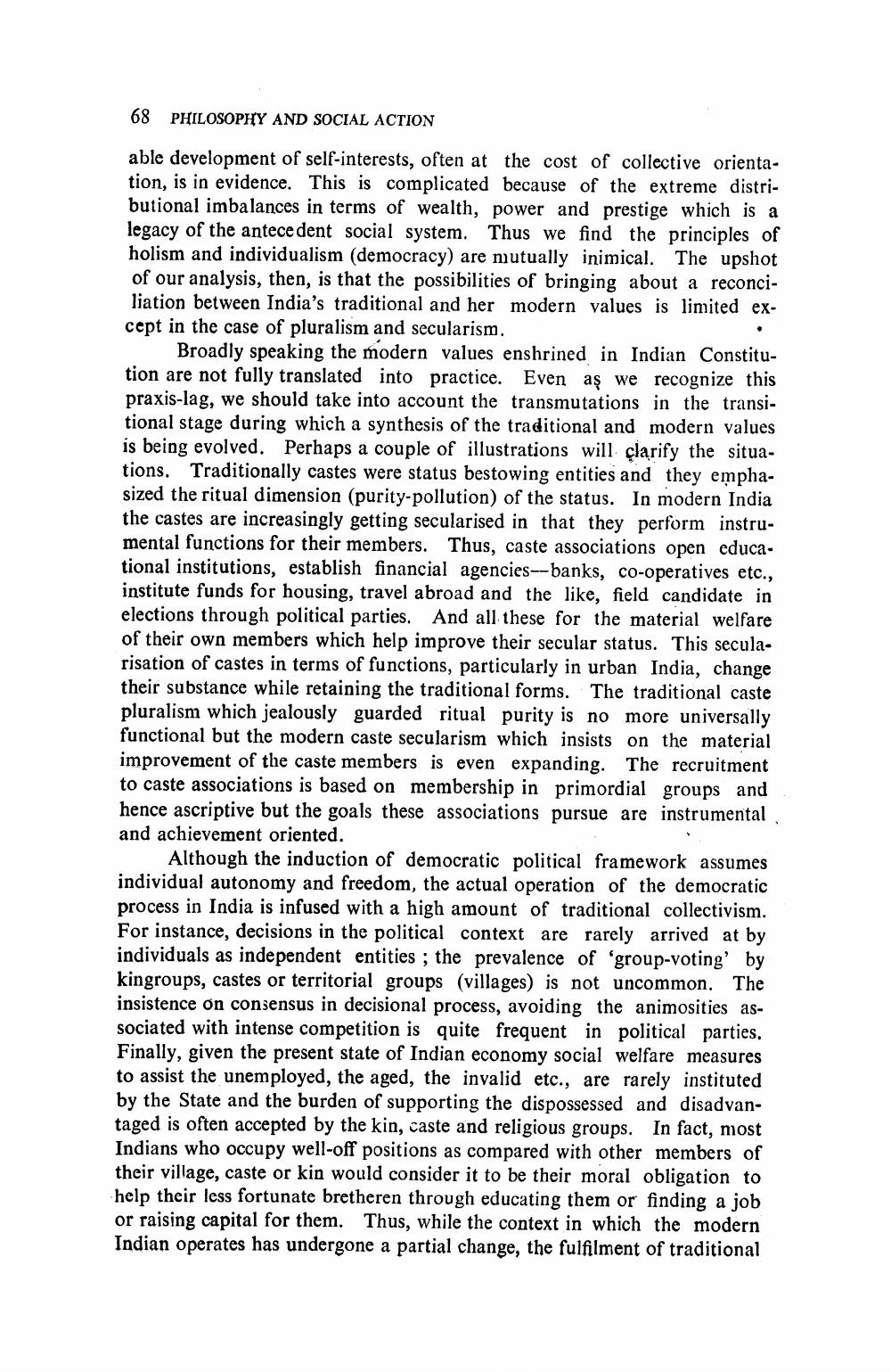________________
68 PHILOSOPHY AND SOCIAL ACTION
able development of self-interests, often at the cost of collective orientation, is in evidence. This is complicated because of the extreme distributional imbalances in terms of wealth, power and prestige which is a legacy of the antece dent social system. Thus we find the principles of holism and individualism (democracy) are mutually inimical. The upshot of our analysis, then, is that the possibilities of bringing about a reconciliation between India's traditional and her modern values is limited except in the case of pluralism and secularism.
Broadly speaking the modern values enshrined in Indian Constitution are not fully translated into practice. Even as we recognize this praxis-lag, we should take into account the transmutations in the transitional stage during which a synthesis of the traditional and modern values is being evolved. Perhaps a couple of illustrations will clarify the situations. Traditionally castes were status bestowing entities and they emphasized the ritual dimension (purity-pollution) of the status. In modern India the castes are increasingly getting secularised in that they perform instrumental functions for their members. Thus, caste associations open educational institutions, establish financial agencies--banks, co-operatives etc., institute funds for housing, travel abroad and the like, field candidate in elections through political parties. And all these for the material welfare of their own members which help improve their secular status. This secularisation of castes in terms of functions, particularly in urban India, change their substance while retaining the traditional forms. The traditional caste pluralism which jealously guarded ritual purity is no more universally functional but the modern caste secularism which insists on the material improvement of the caste members is even expanding. The recruitment to caste associations is based on membership in primordial groups and hence ascriptive but the goals these associations pursue are instrumental and achievement oriented.
•
Although the induction of democratic political framework assumes individual autonomy and freedom, the actual operation of the democratic process in India is infused with a high amount of traditional collectivism. For instance, decisions in the political context are rarely arrived at by individuals as independent entities; the prevalence of 'group-voting' by kingroups, castes or territorial groups (villages) is not uncommon. The insistence on consensus in decisional process, avoiding the animosities associated with intense competition is quite frequent in political parties. Finally, given the present state of Indian economy social welfare measures to assist the unemployed, the aged, the invalid etc., are rarely instituted by the State and the burden of supporting the dispossessed and disadvantaged is often accepted by the kin, caste and religious groups. In fact, most Indians who occupy well-off positions as compared with other members of their village, caste or kin would consider it to be their moral obligation to help their less fortunate bretheren through educating them or finding a job or raising capital for them. Thus, while the context in which the modern Indian operates has undergone a partial change, the fulfilment of traditional




